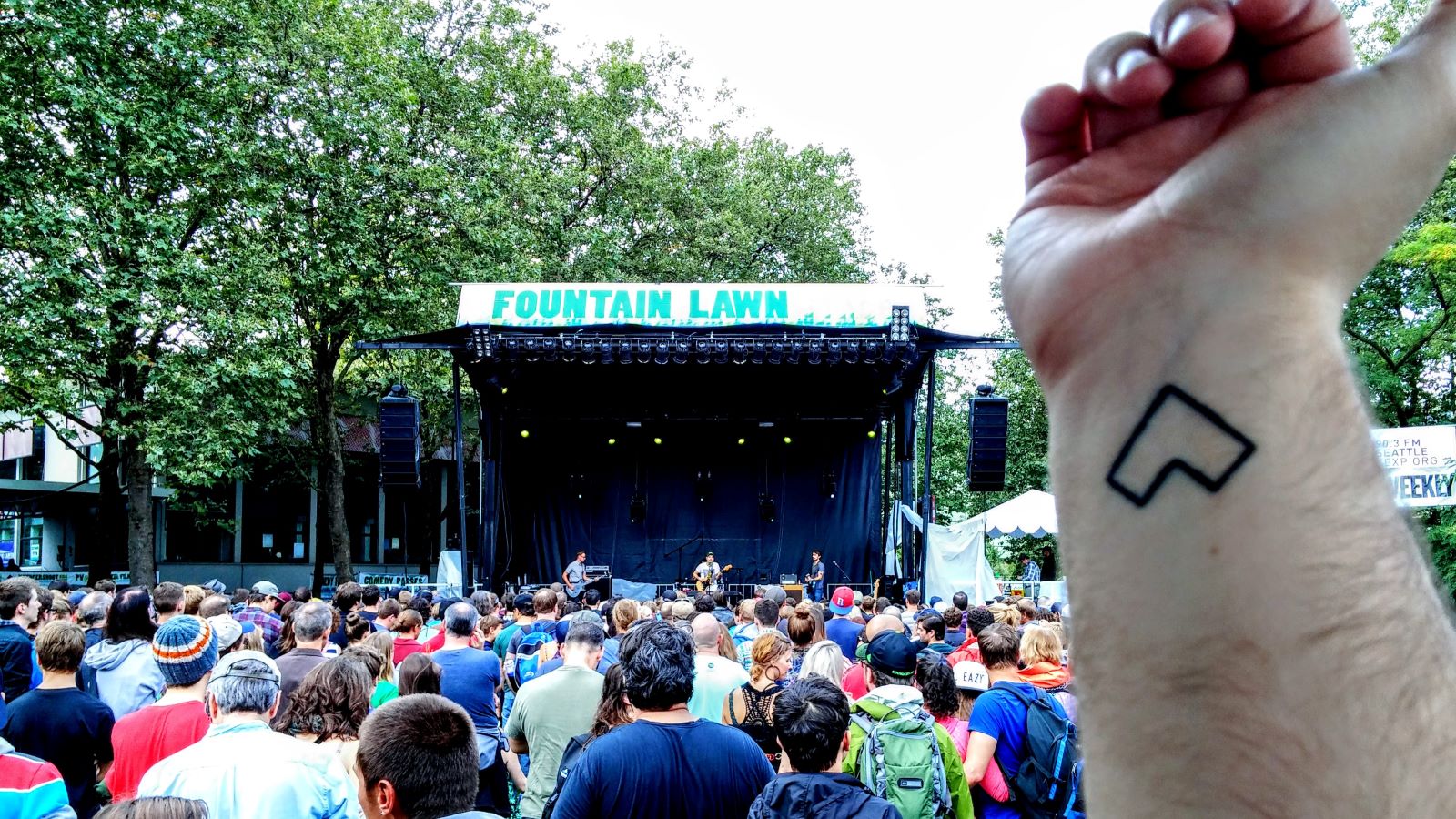august 30, 2014
energetic, loud, and hopeful

The Lonely Forest played their last show together on August 30th, 2014. The air was crisp, the sky was a hazy blue, and the boys were tired. Barely 10 months had passed since they released their last album, but the years since Arrows had worn them out.
Arrows was the result of their work with Chris Walla, at the time best known for his role as guitarist and producer for the celebrated and revered Seattle band Death Cab for Cutie. The Lonely Forest, hailing from the Pacific Northwest themselves, had played a legendary album release show for We Sing the Body Electric at Seattle’s all-ages venue The Vera Project in the spring of 2009. The album and surrounding chatter captured Walla’s attention, compelling him to form an imprint label on Atlantic Records called “Trans-“ (get it? Trans-Atlantic?) specifically to sign The Lonely Forest and record, produce, and release the album that would become Arrows.
Tracked in the summer of 2009, Arrows sounded like a band ready to take on the world. It was bright and full of energy, loud and angry, wistful and longing. It starts off with a kind of prayer in “Be Everything” before bursting into the anthemic “Turn Off This Song and Go Outside,” the first single from the album, originally released on a teaser EP in the fall of 2009 to introduce more people to the band and generate hype for the upcoming release. Arrows is like a rollercoaster, gently climbing upwards before hard-dropping you into loud guitars, pounding rhythms, melancholy keys, and dissenting but melodic screams for the future, before bringing you back with a gentle, hopeful return home. With Arrows, the band managed to reach new heights, performing on Jimmy Kimmel Live, touring with peers like Someone Still Loves You Boris Yeltsin and Two Door Cinema Club, and supporting Death Cab for Cutie on their Codes & Keys tour.
The years ticked on as their dedicated fanbase waited for signs of new music. In 2013, The Lonely Forest embarked on a co-headline tour with Now, Now from Minneapolis, who Walla had also signed to Trans-. This tour marked the re-release of two of their pre-Trans- albums—2007’s Nuclear Winter and 2009’s aforementioned We Sing the Body Electric—with newly formatted artwork and remastered audio. The band played new songs on this tour—and they played them loud—but there was still no news about a new album, and it was not hard to tell that it was wearing on them.
Adding Up the Wasted Hours—The Lonely Forest’s second release on Trans- and their final album to date—was eventually announced just a few months later in August of 2013, only 2 months out from its October release. The lead single “Warm/Happy” sits near the end of the album but boasts a sparkly, dance-y chorus before it goes out with a promise: “we’re done waiting/we’re done hiding/we are ever-reaching towards the end.” They were being honest. The album came together in spite of a number of tumultuous years navigating approvals, contracts, and fine print—an experience all too familiar to bands trying to make a dent in the industry. Adding Up the Wasted Hours wasn’t technically a sophomore record, but for all intents and purposes, it sounded like one: still marked by hopeful lyrics, rolling melodies, and lush, colorful tones (it was a Lonely Forest record, after all), it was generously encumbered with themes of exhaustion, frustration, and longing for simpler times.
Just half a year and change after the release, in May of 2014, the band announced an indefinite hiatus. They played a few more shows over the following months, including an intimate, penultimate show in their hometown of Anacortes, WA, before capping it off with their swan song at Seattle’s Bumbershoot 2014 on a lovely afternoon. The air was crisp, the sky was a hazy blue, and John Van Deusen (vocals, guitar), Tony Ruland (guitar), Eric Sturgeon (bass), and Braydn Krueger (drums)—four boys who had grown up together in a little town on a little island—were so tired, but they played their hearts out.
Looking out to the crowd before launching into the last song the band ever played, John told the audience, “For the first time ever—I think I really mean this—this is for you guys.” The band closed out their final show with “We Sing in Time,” the quintessential Lonely Forest manifesto, the song the band had played more than any other, as they screamed out to a crowd echoing every word back: “Oh in time the trees die and light will fade/but I hope for a new breath, a new life…”
Energetic, loud, and hopeful for the future—that’s The Lonely Forest.
if you’d like to listen to the bootleg i made of the final Lonely Forest show, you can do so here.

 (C:)
(C:) My Documents
My Documents My Projects
My Projects My Music
My Music My Pictures
My Pictures My Videos
My Videos
